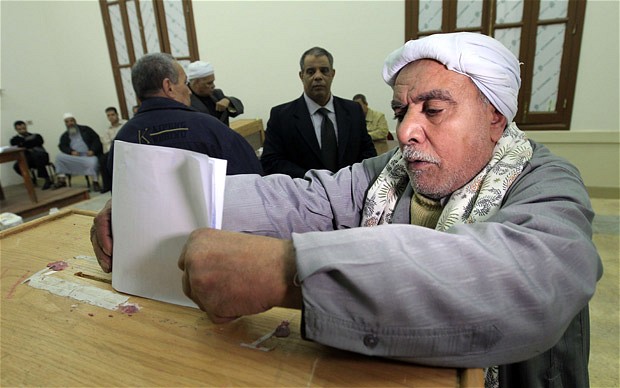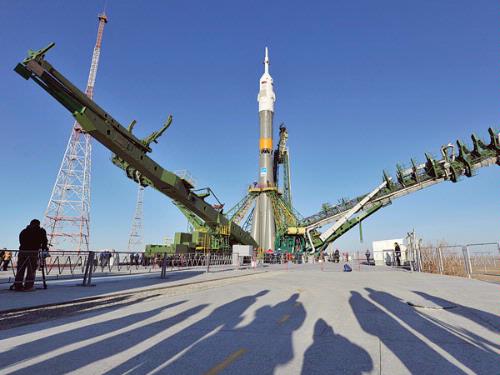There is a critical mass of creativity and knowledge among us in the Middle East, and it is our duty to cultivate it. Our oldest socio-economic challenges are in dire need of new solutions, and we can no longer rely solely on international organizations to remedy our own countries. Now more than ever we must recognize the abilities within our own generation of innovative business leaders and support them along the road to long-term reforms in our region.
Even before the global recession left its footprints in the Middle East, we were facing a troubled socio-economic landscape. Roughly 10 percent of our people are unemployed – the highest number in the world – and a comparable amount lives on less than $2 each day. Our youth and women have faired the worst as 25 percent of young people are unemployed in the region, and our women are four times more likely to be jobless than men.
Widespread youth unemployment prevents many of our 100 million young people from becoming the future leaders of our countries, while the entire region misses a huge opportunity as much of our female population is marginalized.
The implications of such alienation are staggering as it handicaps the region s human development. The capacity to contribute to one’s community is essential to any strong society, and yet, an absence of such opportunities has drastically hindered the region’s prosperity. This dearth of empowerment has become a trademark of the Middle East as countless individuals cannot make viable and sustainable contributions to society.
In light of this maze of impediments, it is abundantly clear that the Middle East needs to do more than simply survive the financial crisis. Rather, we must effectively move beyond these marked obstacles that have characterized our region in recent history. The global recession has not given us in the Middle East an occasion for respite, but we do have an opportunity to reflect and assess the prospects for our next steps toward prosperity.
Although international aid organizations have taken steps to reverse these trends, their efforts have produced only minimal gains. Development initiatives in the Arab world have primarily been project-based, often missing systemic challenges. While such measures have been commendable and at times advantageous, we must realize that the remedy the Middle East seeks must come from within its own borders.
Our path toward systemic reform begins with using this period of stagnation as an opportunity to leverage the ingenuity and promise of our own people.
We must identify, respect, and embrace a new breed of innovative individuals who possess the diligence and soundness of mind to help in effectively leading us into a new period of prosperity.
The social entrepreneurial sector holds the key to reform and sustainability long after the oil wells run dry. Whether countering unemployment, illiteracy, poor health-care, or poverty alleviation, their self-created and sustaining organizations change and inspire their communities. Through combating some of society’s most invasive obstacles, they empower others to take part in a movement of innovative thought, ambition, and sustainability. Through realizing their own potential, social entrepreneurs find the means of unlocking someone else’s, in turn inspiring others to follow in their footsteps.
One example of such an individual is Ehaab Abdou, whose organization, Nahdet Al-Mahrousa, helps Egyptian youth create and implement ideas for economic and social development. His organization currently works in eight countries, serving as a literal haven where young, aspiring entrepreneurs can openly discuss, create and test policy ideas without the threat of censorship.
Providing them with outlets for expression and a sense of purpose Mr Abdou educates youth on ways to positively contribute to their communities.
As their ideas can be replicated and sustained far more individuals accordingly benefit than just those within the organization.
Mr Abdou s work is but one example of how social entrepreneurs can develop a mobilized civilian sector – a fundamental prerequisite for a nation s long-term prosperity. Social entrepreneurs are living proof that an individual holds the power to reshape his or her surroundings for the better.
The Middle East s corporate sector and social entrepreneurs can together create a sustainable and societal impact in which many have lost hope. Our region wields an expansive population with an equally large potential, and yet, we need the proper technical investment to truly realize such promise.
We must learn to build stronger bridges between our corporate and social enterprises, and utilize the unique expertise within each sector to tackle the systemic challenges that affect us all.
During his June 4 speech in Cairo, American President Barack Obama highlighted the most threatening political and social issues in our region, and guaranteed his vigilance in combating them by our side. Nearing the end of his historic address he also shined light on the vital role of social entrepreneurs in our communities. If President Obama s words are to be prophetic, we must take this opportunity at this critical juncture to invest in our own people s ingenuity. An innovative individual s ability to ameliorate his or her community, country, and region provides solutions and hope to those marred in hardships, and it is high time we began to take notice.
Iman Bibars, PhD, is the vice president of Ashoka and regional director of Ashoka Arab World.


